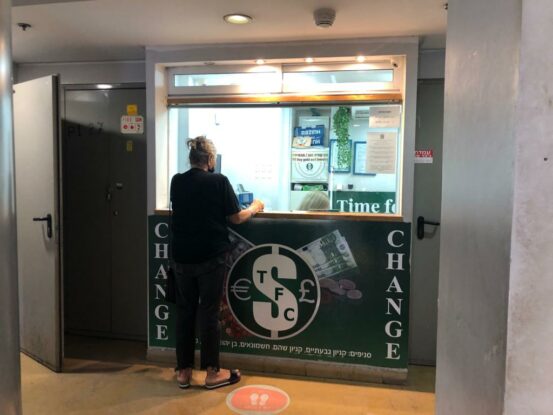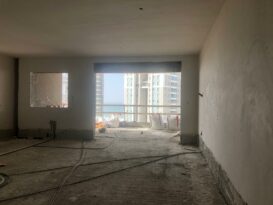Despite the value of the shekel reaching historic highs against the US dollar, pound, and euro in the past week, real estate professionals report that there has not yet been a decline in demand for apartments from foreign buyers. There are many reasons for this phenomenon, including a jump in the number of people moving to Israel following the pandemic and fears that the housing prices will continue to rise, all while the shekel keeps getting stronger. Meanwhile, low interest rates allow interested buyers to reduce down-payments and increase borrowing.
As of last week, the shekel is officially the strongest it has been in 25 years when compared to the US dollar, the pound, the euro, and almost every other foreign currency. The strength of the shekel has made the task of buying an apartment in Israel especially complex for those whose income is not in shekels. Anyone interested in buying real estate in Israel is facing a 10% increase in apartment prices over the past year, but those earning in US dollars have to deal with an additional 10% price increase, as the value of the dollar dropped about 10% against the shekel in this period.
There are a number of key factors for the strengthening of the shekel against foreign currencies: one is a significant increase in the volume of exports by Israeli companies, as well as a sharp increase in the volume of foreign investment in Israel, mainly against the background of the flourishing Israeli high-tech industry. In the past year, dozens of acquisitions of Israeli high-tech companies have been made by foreign investors who have benefited thousands of industry workers. These purchases were made in US dollars, which Israeli companies had to convert to shekels, and therefore increased the demand for shekels on the one hand, and significantly increased the supply of foreign currency on the other.
Earlier in 2021, the Bank of Israel tried to moderate the strengthening of the shekel in order to protect exporters by purchasing 30 billion US dollars, however, the Bank ceased these efforts, and now allows the market to operate naturally.
The strengthening of the shekel has several significant implications for the Israeli economy – some positive, some less so. The most prominent positive consequence is, of course, the increase in the purchasing power of the Israeli public, earning shekels, relative to the rest of the world. The price of imported products is cheaper when purchased in shekels, and this is one of the main reasons for the low inflation in Israel, which the Treasury estimates is expected to amount to 1.5% throughout 2021. On the downside, the strength of the shekel has the potential to harm the profits of exporters and manufacturers who sell their products in foreign currency, which as a result, could affect the entire Israeli economy.
However, according to Israel real estate professionals who are well acquainted with the housing market for immigrants and foreign residents, the level of demand in the housing industry has not yet been affected by these developments in the foreign exchange market, and they don’t expect this to change any time soon.
Buyitinisrael spoke about this subject with Moshe Cohen, CEO of Blue Crown FX, which deals with transfers and conversions, and Blue Crown Capital, which deals with mortgages: “The strengthening of the shekel against all foreign currencies has made purchasing an apartment in Israel more difficult, of course, but I do not see a decrease in purchases.”

The two main buyer segments that Cohen works with are new immigrants from English-speaking countries, including those who have already been living in Israel for several years, and Jews around the world who want to own a home in Israel, whether or not they have plans to make aliyah any time soon. According to Cohen, the main reason that there has not been a drop in purchases despite the strengthening of the shekel is a rise in the number of interested buyers from these populations – especially now, as pandemic-related delays and changes in plans are starting to ease up.
“There are a lot of people who have recently immigrated to Israel or want to make aliyah in the next few months,” he says. “Many of them have been following the housing market here for a long time, and they see that apartment prices continue to rise. With no signs of slowing down, they have decided that they should buy as soon as possible.”
According to Cohen, uncertainty about future exchange rates is another contributing factor: “The fact that the dollar is weakening now does not mean that it will rise tomorrow. If everyone knew that it would get stronger soon, they’d obviously stop buying apartments and wait for the situation to change. However, it’s impossible to predict something like that, and it’s just as possible that in another month or two the dollar exchange rate will be even lower than today, and buying an apartment will be even more difficult than it is now.”
We asked Cohen whether he’d seen a recent change in the types of properties being purchased, such as a rise in demand for more affordable neighborhoods or smaller apartments: “We see no change in the luxury market; those who can afford to buy an apartment in the Mamilla neighborhood in Jerusalem can buy one regardless of the exchange rate,” he explained. “However, this is not the case for middle-class buyers, for whom this kind of change has a stronger impact. But the mortgage interest rate is still very low, and one of the ways to deal with the strength of the shekel is to reduce the equity component of the purchase and increase the mortgage.”
“It is quite possible that the strength of the shekel has made it impossible for some immigrants to buy apartments in Israel,” Cohen admitted. “However, since the number of immigrants this year is expected to be higher than the last few years, even if there is a decrease in the percentage of immigrants who can afford to buy an apartment at the moment, we have yet to see a drop in demand in absolute terms.”








